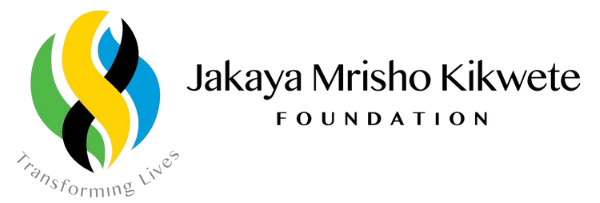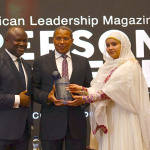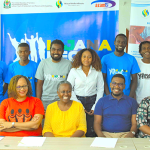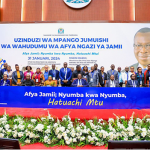The first ever National Scientific Hybrid Conference on Reproductive, Maternal, Newborn, Child and Adolescent Health and Nutrition (RMNCAH+N) was held from 17th to 19th November 2021 at the Julius Nyerere International Convention Centre (JNICC) in Dar es Salaam. The Conference carried the theme “Accelerating Actions towards Reduction of Maternal, Newborn and Child Deaths in Tanzania”. The conference was jointly organized by the Ministry of Health, Community Development, Gender, Elderly and Children (MoHCDGEC) and President’s Office – Regional Administration and Local Government (PO-RALG) in collaboration with partners including Jakaya Mrisho Kikwete Foundation (JMKF) The conference was inaugurated by the Hon. Kassim Majaliwa Majaliwa, the Prime Minister of the United Republic of Tanzania who launched the National Strategic Plan III for Reproductive, Maternal, Newborn, Child and Adolescent Health and Nutrition 2021/22 to 2025/2026 (One Plan III) and Family Planning 2030 Country Commitments, which will guide implementation towards achieving the related SDG targets.
The conference attracted a lot attention and over 1,600 delegates from Central and Local Governments, Academia, Researchers, Implementing Partners, Donors, Civil Society Organisations, Health Service Providers, Pharmaceutical Companies, the Private Sector including Banks and Health Innovators attended this conference.
During the three-day conference participants had an opportunity through plenary and breakout sessions to get updates, review data/evidence , shared better practices, lessons learned and discuss the actions needed to accelerate progress in the following areas including i)COVID-19 in RMNCAH; ii) Human Resources for RMNCAH; iii) Partners’ efforts and commitments to enhance Government support; iv) Integration of Respectful and Compassionate Care in RMNCAH; v) Technologies &Innovations in RMNCAH; vi) Leadership, Governance and Accountability, vii) Maternal Care Financing; viii) Maternal, Newborn and Child Health; ix) Sexual Reproductive Health; x) Nutrition in RMNCAH, xi) Health Information System; xii) Professional Development (CPD)and xiii) community involvement.
Key unanimous recommendations from the conference were:
- A comprehensive approach is needed to ensure access to critical life-saving care and high-impact e RMNCAH services across the continuum of care.
- Need to identify and/or scale up effective, evidence-based interventions that will transform the impacts within RMNCAH through:
- Improved policies, services, and systems.
- Improved health-seeking behaviors
- Capacity building across all levels of care.
- The application of evidence-based expert solutions that will make pregnancy safer, ensure proper and timely management of labour and delivery, proper and timely postpartum care for the motherand her newborn.
MOHCDGEC and PORALG officials committed to implement recommendations which came through the conference. It was agreed that the conference will be held biannually, and the next conference will be 15th – 17th November 2023.
The JMKF was able to prepare a dialogue during the conference to discuss Partners’ Efforts and Commitments to Enhance Governmental Support. This was a dialogue on health-related investment on RMNCAH, with the goal of improving health system performance by directing investment toward infrastructure, human resources, service delivery, and technologies, as well as tracking implementation performance. The objective of the panel discussion was to see how partners can work together to finance various RMNCAH+N interventions in the country. The session was chaired by Retired President Jakaya Kikwete who also served as co-chair in similar discussions in 2010 aimed at enhancing accountability and tracking. The panelists were: 1. High Commissioner of Canada to Tanzania – H.E. Pamela 2. Dr. Ulker Baker – UNICEF 3. Dr. Heri Marwa – PharmAccess 4. Dr. Samwel Ogillo – APHFTA 5. Dr. Ntuli Kapologwe – PORALG 6. Dr. Catherine Joachim – MOHCDGEC. Systems for health – all areas that can influence health outcomes – education and water and the demand side community empowerment, capacitate health care workers, Civil vital registration strengthening, Harmonization of community governance structures and supply side – Human Resource for Health (HRH), governance, and Health Information System were among the key issues that were discussed.















Previous
Next




